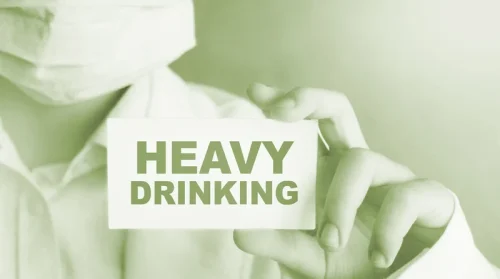
What worked for you and what didn’t can help others avoid pitfalls and make better decisions in their journey. The researchers found that participants were much more immersed in the narrative messages, where they felt a stronger relatable connection than in the fact-based messages. The most popular form of sharing stories today is through digital media, especially social media platforms.
BOOK REVIEWS
- Erum Quddus trains both tech and non-tech folks on doing great communications and storytelling.
- A well-structured story can captivate an audience from start to finish, making your message more impactful and memorable.
- By sharing your experiences, you’re providing valuable insight and perspective.
- These patterns offer valuable insights into our core values and beliefs.
- By mastering the art of storytelling, individuals and organizations can create compelling narratives that resonate with their audiences and drive engagement.
- Finally, it can be helpful to use stories that focus on emotions and feelings, as this can help children to develop a better understanding of their own emotions and the emotions of others.
What’s the difference between someone who has achieved resilience and someone who has not? People who have found their voice, shared their story, and reaffirmed their values often find a sense of peace and a hopefulness that they did not have before. Another well-known benefit of storytelling is finding your own voice. What does it mean to “find your voice?” It means learning how to express yourself and learning how to think about what has happened in your life in a way that makes sense.

Build a Daily Storytelling Practice.
Overall, these studies suggest that storytelling can be an effective tool for developing empathy in children and adults alike. Furthermore, a study published in the Journal of Mental Health Counseling found that storytelling can be used as a therapeutic tool to help individuals develop empathy towards themselves and others. The study found that storytelling can help individuals gain a better understanding of their own experiences and emotions, which in turn can lead to greater empathy towards others. In conclusion, character development and perspective-taking are crucial for empathy development.
People in this Story

I feel an even stronger pull to share my stories and communicate in the most authentic ways possible, even if it’s online communication. I’m over turning a long held belief that it’s unprofessional or overly dramatic; not when you are coming from a place of authenticity. By telling our story, we release ourselves from those binds and give rise to an opportunity of connection. It requires a lot of emotional and mental energy for me to feel sharing your story in recovery okay sharing my stories, and I know that I’m certainly not alone. There’s immense irony in that belief because I’m so often coaching others to believe that they have stories worth sharing.

By sharing stories, we can connect with others on a deeper level and develop a better understanding of their needs and emotions. If you’re feeling depressed, it’s easy to feel disconnected from others and alone in your struggle. But when you share your life stories, you have an opportunity to build a support network that provides meaningful interactions with people who understand where you’re coming from. If there are people close to you who are struggling with depression and haven’t sought help yet, talking about your struggles might encourage them to seek help as well. They transform mere events into experiences that audiences can relate to and care about. By tapping into universal feelings such as joy, fear, or hope, storytellers can create an emotional journey that moves people deeply.
How Sharing Your Small Personal Experience Can Help Others
To incorporate oral storytelling into your empathy-building practice, consider hosting a storytelling circle or workshop. Encourage participants to share personal narratives and experiences, and use active listening techniques to ensure that everyone feels heard and understood. By creating a safe and supportive environment for sharing stories, you can help build empathy and understanding among participants.

Our stories often hold insights about ourselves and our place in the world. Interpreting these experiences and the healing that comes through sharing forms a part of the intricate web of storytelling. From ancient times, storytelling has been utilized to perpetuate cultural values, pass wisdom across generations, or to simply entertain.
- I wrote about my struggle with procrastination and my attempts to finish my book.
- When we empathize with someone’s story, we are able to connect with them on a deeper level.
- By exposing us to different perspectives and experiences, stories can challenge our assumptions, broaden our horizons, and help us see the world in a new light.
- It involves telling stories aloud, often in a group setting, and can be a highly engaging and immersive experience.
Recent Agile Alliance Blog Posts
But then I came to the point when I need to actually edit it and send the book out into the world. I want to share something that’s a little personal with you this week. Moving into a place where I’m (slightly) more comfortable being vulnerable with people is something that I have been working on this past year.

Learn how mindfulness and meditation techniques Oxford House can help you achieve deeper, restorative sleep for a better life.
- These are the hardest things to share with the world but once you do, it sheds awareness on society that such issues exist.
- When we share our stories, we give voice to our experiences, emotions, and thoughts.
- As students read these memoirs and narratives, they need time for reflection and sharing their ideas.
- Whether it’s recording a voice message through Storii or writing it in a journal.
By sharing and receiving stories, we can help ourselves and others; we can =https://ecosoberhouse.com/ build and strengthen relationships; we can move closer to self-acceptance and self-love. Yes, I have shared my story and integrated my MS into my life, but not fully. For years, I have kept myself separate from the MS community — not intentionally, or at least not consciously so, but with determination. I have never joined a support group or any other event designated for MS patients. Jessica Isom, MD, MPH is a Steve Fund mental health expert and the lead content developer for My Digital Sanctuary, a platform supporting the mental health and wellbeing of young people of color.